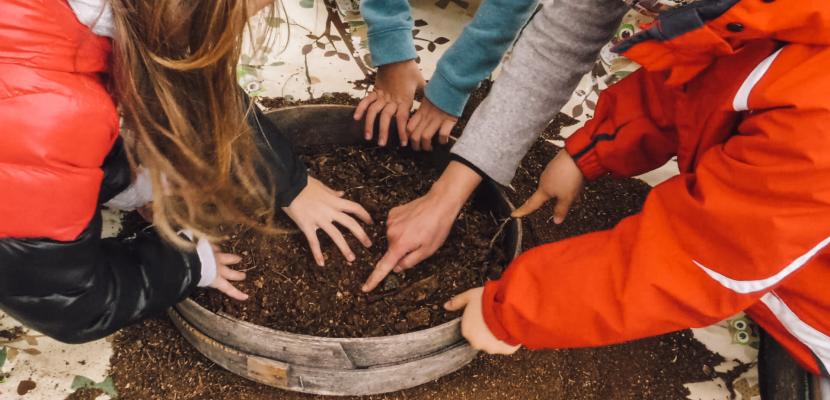Image

“Dhor el compostador”, a school composting and environmental awareness project.
Published on 25 February 2021

Spain
Aragón
This is the good practice's implementation level. It can be national, regional or local.
About this good practice
The aim of the project is to raise awareness and sensitize the Educational Integrate Public Centre (CEIP) “Gaspar Remiro” in Épila (Zaragoza) about the importance of reducing waste and managing it properly through active participation in school composting.
This project represents the firm commitment to the sustainability and the circular economy of an entire municipality when promoted and financed by the City Council of Épila (Zaragoza). It has been developed by Nómadas, education and environmental management, and executed/implemented by the entire CEIP educational community of Gaspar Remiro (students, teachers, non-teaching staff and families)
It has been possible to compost all the organic waste generated in the school canteen, contributing to reduce waste generation, fight climate change, produce quality compost for the school garden, and involve students in the protection of the environment through small daily gestures.
Students, as users of the dining room, oversee the tasks typical of school composting. Through these tasks, they acquire sustainable habits, reinforce academic learnings, and learn values of coexistence and empowerment by listening to their opinions about the composting process itself.
This project represents the firm commitment to the sustainability and the circular economy of an entire municipality when promoted and financed by the City Council of Épila (Zaragoza). It has been developed by Nómadas, education and environmental management, and executed/implemented by the entire CEIP educational community of Gaspar Remiro (students, teachers, non-teaching staff and families)
It has been possible to compost all the organic waste generated in the school canteen, contributing to reduce waste generation, fight climate change, produce quality compost for the school garden, and involve students in the protection of the environment through small daily gestures.
Students, as users of the dining room, oversee the tasks typical of school composting. Through these tasks, they acquire sustainable habits, reinforce academic learnings, and learn values of coexistence and empowerment by listening to their opinions about the composting process itself.
Resources needed
The project was developed by Nómadas, Education and Environmental Management. All students and teachers at the school attended (455). The cost of the project was 14,900 (VAT excluded), funded by the City Council of Épila (Zaragoza)
Evidence of success
22 classroom training and awareness sessions. 22 educational composting workshops
1 training session with families. 6 training and awareness-raising sessions with the students in the dining room. Meetings with the association of mothers and fathers and non-teaching staff of the school
All students and teachers (455 people) were cared for
All the bio-waste in the school canteen and some of the remains of the lunches generated at recess were composted
As a result, 67 kg of compost was obtained
1 training session with families. 6 training and awareness-raising sessions with the students in the dining room. Meetings with the association of mothers and fathers and non-teaching staff of the school
All students and teachers (455 people) were cared for
All the bio-waste in the school canteen and some of the remains of the lunches generated at recess were composted
As a result, 67 kg of compost was obtained
Potential for learning or transfer
Carrying out this project in an educational centre throughout a school course shows that it is possible to integrate the circular economy into the management of schools, and to integrate it in the day-to-day operations, creating more sustainable schools.
The key points for a simple transfer are:
- Having the commitment and involvement of the management of the school.
- The workshops were well accepted by both teachers and students, as reflected in the assessments.
- The resulting composts can be applied in the orchards or gardens in schools.
- School composting is presented as a management alternative to school bio-waste.
For the future, the centre is expected to continue implementing the composting protocol and continue to properly manage all organic waste and other waste on the recycling islands.
The key points for a simple transfer are:
- Having the commitment and involvement of the management of the school.
- The workshops were well accepted by both teachers and students, as reflected in the assessments.
- The resulting composts can be applied in the orchards or gardens in schools.
- School composting is presented as a management alternative to school bio-waste.
For the future, the centre is expected to continue implementing the composting protocol and continue to properly manage all organic waste and other waste on the recycling islands.
Further information
Website
Good practice owner
You can contact the good practice owner below for more detailed information.
Organisation
Regional Government of Aragón

Spain
Aragón
Contact
Gobierno de Aragón